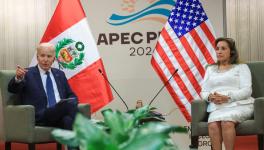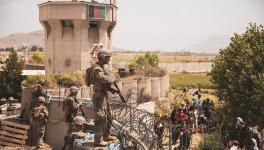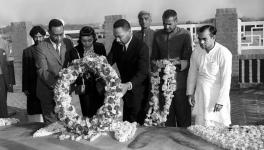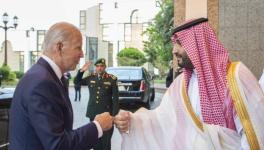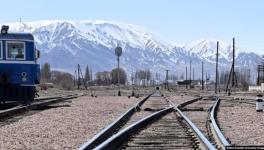‘India has a Neighbourhood, Cannot Live on American Support Alone’—AS Dulat
AS Dulat
For the second time in 25 years, the Taliban is in control over Afghanistan as United States troops exited the country on August 31, ending a chaotic withdrawal of foreign troops that began with the United States-Taliban agreement signed in Doha last year. Afghanistan’s neighbours, including Russia, China and Pakistan, are weighing the new regime and forging relations afresh with Kabul. Many find that India is sidelined in this process and holds precious few cards. AS Dulat, former director, Intelligence Bureau, chief of the Research and Analysis Wing (RAW) from 1999-2000, and advisor to the Prime Minister’s Office on Kashmir from 2000-04, speaks with Rashme Sehgal about what the Taliban’s return could mean for India. The problem, he says, is India has depended on the United States for too long, and lets domestic concerns override foreign policy. In Kashmir, he says, the fallout will depend on the relationship India forges, over time, with Pakistan and the Taliban.
With America out of Afghanistan, many security analysts say, the Taliban has become a legitimate partner in the fight against terrorism. What do you think?
We have to wait and watch. But certainly, the Taliban are here to stay. All the powers in the region have accepted them. If China, Russia and Pakistan get together with the Taliban, then the writing on the wall [for India] is very clear.
As a country in the same region, do you think it was a mistake India vacated the embassy in Kabul hurriedly?
Our exit was certainly very swift. It has surprised everybody except possibly those who were there, including the Americans. The problem is that we have depended on the Americans for far too long. They are out in the cold. We need to enter the game.
How do we do that?
It is a good question. Having depended for so long on the Americans, maybe we need American help to get along with the Taliban.
Are you saying we are not a player in Afghanistan any more?
That is the tragedy of the situation. We knew for the last two years that the Americans were talking to the Taliban then why were we not talking to them also? There are several questions we should have asked the Americans: ‘What is going on?’ ‘What is going to happen next?’ ‘You cannot leave us in the lurch.’ [Yet] that is what has happened, and that is the situation at present.
India did some back-channel talks with the Taliban.
The trouble with back-channel talks is that they remain quiet. Now everyone in the neighbourhood is coming out openly for the Taliban. We should have been part of the process.
We got caught in a bind. Reports said, for example, that the Haqqani group controlled security in Kabul. It is this group that attacked the Indian embassy in Kabul and orchestrated several attacks in Kashmir.
These are old stories now. It is a fact, they attacked many assets, but another fact is that the Taliban is now in control of Kabul. The question is how the situation will play out now. We should have anticipated this. We need to mend our fences, [though] it’s a bit late now.
Do you also think the developments in Afghanistan are a significant victory for Pakistan?
Of course, it is. For years, Pakistan’s main concern was that India should not have more influence in Afghanistan than them. We were close to both the Hamid Karzai and Ashraf Ghani governments. Now, with the Taliban back, with US help, Pakistan is sitting pretty. The other tragedy is that we are not even talking to Pakistan. The ceasefire in the Line of Control [LoC] took place in February. That was an opening. If we had followed up on it, then, at least, we should have had some relationship with Pakistan. I am looking at it from Kashmir and the Pakistan angle.
Is there a threat to Kashmir? Some militant groups in Afghanistan say Kashmir is their next target.
Let us wait and watch. It can happen down the line, but at this moment, there is no threat to Kashmir from them. The security situation in Kashmir is under control. The Taliban is reaching out to India. One of their leaders said we would like to have a relationship with India. They understand that India is an important power in the region. It is for us to figure it out. They [the Taliban] want recognition from India. They want international recognition. They [have assured that they] will not get involved in, or help [radical] groups commit terrorist acts.
I repeat, there is no immediate threat from them on Kashmir just now though we can never rule out the possibility. It will depend on our relationship with Pakistan and with the Taliban over time. Since the ceasefire on the LoC, infiltration is minimal, and terrorism has been reduced. I see no reason for it to hype up.
Would it have helped India if Prime Minister Narendra Modi’s government had revived the democratic process in Jammu and Kashmir, and we had a state government there?
Of course. The Indian government is committed to restoring statehood in Jammu and Kashmir. Whether it comes before or after the elections, statehood will have to be restored.
Would revival of the democratic process in J&K have sent a positive signal to our neighbours, Pakistan, China or Russia?
It was my feeling that elections [in Jammu and Kashmir] would be held in September-October. But that is not going to happen now. People in the know say they will be held in March or April next year.
At present, the focus of the government is on Uttar Pradesh.
Of course. Delhi has the last word on this, and the government will do whatever suits them.
What happens to the assets India has constructed in Afghanistan in the last 20 years?
We were one of the players in Afghanistan and invested a lot of money there. We have to get there somehow. A new game is being played out in that country. We see Russia, China and Pakistan getting together. We hear the Russian foreign minister say there is no place for India on this table. It is not music to our ears.
Does it reflect poorly on our foreign policy? If so, why?
That’s right. We are a part of the QUAD, but all the countries in QUAD, be it the United States, Japan, or Australia, are far away from us. Joining the QUAD sends a signal that we are willing to become a proxy for anti-China propaganda. Why should we do that? The great thing about non-alignment was we did what was in our best national interest. All these years, we had a good relationship with Russia. We must also not forget that China is a huge and important neighbour. How long can we have a hostile relationship with them?
We have hostile neighbours on both sides, whereas we need a good relationship with both nations. We may not like our neighbours but all the more reason to engage with them. Both are powerful countries. Both are nuclear powers.
Why have we allowed this to happen?
For too long, our foreign policy has been impacted by domestic concerns.
Yet, India has significant trade links with China.
The sentiment in the country is always influenced by what our leaders think and say. When (Atal Bihari) Vajpayee took a bus to Lahore, there was quite a lot of euphoria that, finally, our problems with Pakistan would end. Unfortunately, Kargil followed. Subsequently, we cannot forget that [former prime minister] Manmohan Singh and [former President of Pakistan] General [Pervez] Musharraf almost came to an understanding.
The senior-most security officer in India had said that the Afghanistan National Army would put up a good fight against the Taliban. Was that a miscalculation?
What fight could the ANA have put up when their own president, Ashraf Ghani, ran away?
America is being accused of not having equipped the ANA adequately.
It is very difficult to create an army to fight against your own people. It is not easy. The ANA were conscious of this, and I will not be surprised if many of them join the Taliban.
Will the Northern Alliance be able to put up a fight against the Taliban?
The Northern Alliance we talk of goes back to the 1990s when Ahmed Shah Massoud was still alive and had the backing of Iran and Russia. Not much is left of it today. All these people will ultimately make peace with the Taliban.
Did the Taliban outplay the United States?
I don’t think America allowed itself to be outplayed. In a sense, they have outsmarted everybody else. It is Trump who wanted to get out. People keep blaming (US President) Biden for this...The whole Afghan project was disastrous, and the Americans have a knack for this. Wherever they go, they end up with egg on their face.
We cannot forget the mass of weapons they have left behind.
It is deliberate. There has been a deal with the Taliban. If you notice, the Taliban has not harmed a single American. The Taliban [also] assured us [Indians] before we left Kabul of our security. They told us not to leave.
The Indian government is in a bind. It knows Pakistan has been the most significant source of terrorism.
Fair enough. That is a fact. We have to deal with it. It has been so since 1989-90. [Yet,] that is a separate matter. Now things are beginning to get better. The years between 2003-7 were peaceful. Now, again, the situation is much better. We need to at least engage with Pakistan, whether we come to an understanding or not. Either we throw them off the face of the earth! But when war is not an option, then, logically, sensibly, we need to talk.
Why do you think the United States pressured the former Afghan government to release Taliban prisoners from prisons? Many of them had huge ransoms on their heads.
That was part of the deal. These are all questions our government should have asked the United States: ‘Where do we go from here now that you are exiting?’ We are interacting, on a daily basis, with the United States. Our foreign minister is talking every single day with the United States secretary of state. Everybody has conveniently found a place in Afghanistan, but what about us?
We are also a big player in that country. Why should we agree to be zeroed down on? Or are we waiting for terror[ism] to come to Kashmir before we say, 'we told you so'? Everyone knows that terrorism came from Pakistan. In all these years from 1989, has anyone helped us? Have the American or the British or the Russians come to our rescue? We have had to help ourselves.
The point is that we have had a special relationship with the United States, which we say is strategic. However, we cannot live in this world with American support alone. We live in this neighbourhood. Now, look at Iran. The Taliban are Sunni, and the Iranians are Shia, but the Taliban has no problem with the Iranians and vice versa. Taliban leaders attended Shia Muharram processions. We have to find a way of getting back to Afghanistan. The way [to do it] is to talk to them, deal with them and do business with them.
(Rashme Sehgal is a freelance journalist.)
Get the latest reports & analysis with people's perspective on Protests, movements & deep analytical videos, discussions of the current affairs in your Telegram app. Subscribe to NewsClick's Telegram channel & get Real-Time updates on stories, as they get published on our website.










